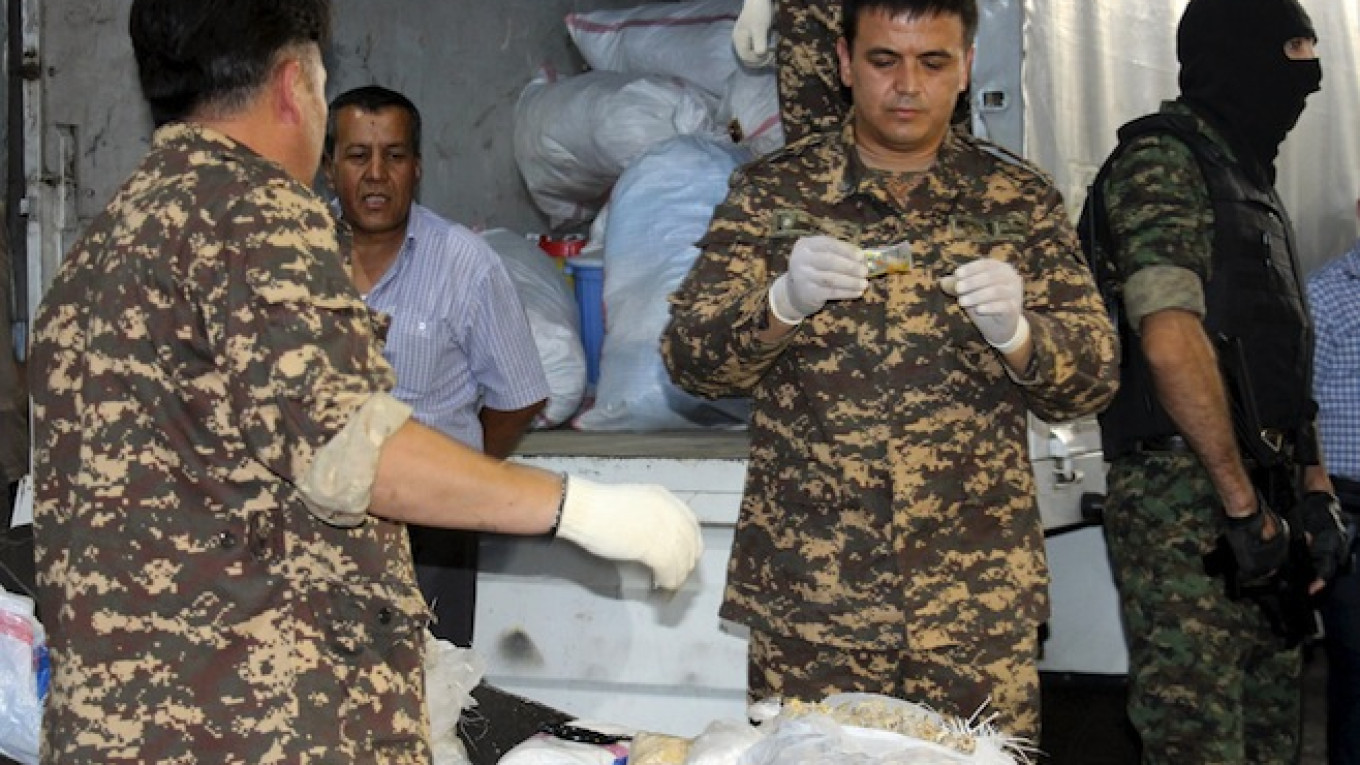TASHKENT — Drug enforcement officers in Uzbekistan burned 1.4 metric tons of drugs on Thursday, as Central Asia's most populous nation fights to stem the flow of narcotics from neighboring Afghanistan to Russia and further on to Europe.
Heaps of drugs, including 133.3 kilograms of heroin and 775 kilograms of opium, were incinerated in a furnace at a metallurgical plant outside the Uzbek capital Tashkent before an audience of diplomats, workers at international organizations and reporters.
The drugs had already been used as evidence against drugs traffickers at their trials, according to Uzbek officials.
"Afghan-made heroin mostly enters Uzbekistan from Tajikistan and Kyrgyzstan," Olimjon Turakulov, a spokesman for Uzbekistan's national security service told Reuters.
"There is also direct trafficking from Afghanistan, but a shorter border and natural obstacle — the Amu Darya river along the border — make it easier to control this route," he said.
Uzbekistan, a mainly Muslim nation of 30 million, shares 137 km (86 miles) of its border with Afghanistan, roughly a tenth of Tajikistan's remote, mountainous border with the Islamic country.
Afghan heroin smuggled into Tajikistan flows via Kyrgyzstan, Uzbekistan and Kazakhstan to end up in Russia or Europe.
In 2014 Uzbek security services seized 2,298 kilograms of drugs following a similar haul in 2013. Uzbek drug enforcers have incinerated 54 metric tons of drugs since 1994.
Last year law enforcement staff arrested 100 foreign nationals for drug-related crimes including 25 Tajik citizens, 22 Russians and 19 Afghans.
But it is unclear how much of a blow has been dealt to the international drug trade in the volatile region.
"Perhaps we could seize more. I would say that ... it is very difficult to quantify the total amount that gets trafficked," Ashita Mittal, the regional representative of the United Nations Office on Drugs and Crime for Central Asia, told Reuters.
Uzbekistan's government is "politically committed, taking strong measures and a very strong law enforcement response to the problem", she said.
But "the traffickers are getting smarter, they are also finding new ways, new routes to traffic the substances," she added. ?
A Message from The Moscow Times:
Dear readers,
We are facing unprecedented challenges. Russia's Prosecutor General's Office has designated The Moscow Times as an "undesirable" organization, criminalizing our work and putting our staff at risk of prosecution. This follows our earlier unjust labeling as a "foreign agent."
These actions are direct attempts to silence independent journalism in Russia. The authorities claim our work "discredits the decisions of the Russian leadership." We see things differently: we strive to provide accurate, unbiased reporting on Russia.
We, the journalists of The Moscow Times, refuse to be silenced. But to continue our work, we need your help.
Your support, no matter how small, makes a world of difference. If you can, please support us monthly starting from just $2. It's quick to set up, and every contribution makes a significant impact.
By supporting The Moscow Times, you're defending open, independent journalism in the face of repression. Thank you for standing with us.
Remind me later.


